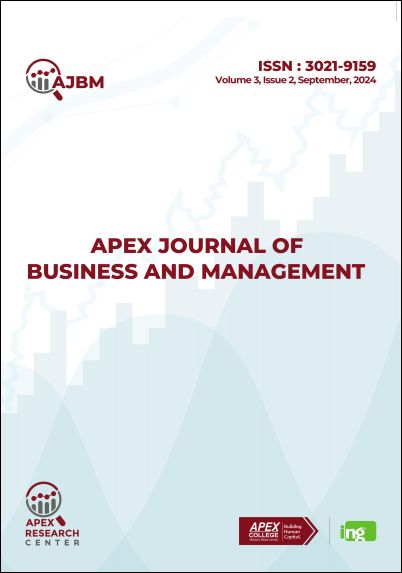Broad Market Indices of Nepal Stock Exchange: Testing of Efficient Market Hypothesis
Keywords:
Nepal Stock Exchange, efficient market hypothesis, broad market indices, market efficiency, random walk hypothesisAbstract
The objectives of the study was to examine whether the broad market indices of NEPSE is weak-form efficient empirically and to investigate whether there are any anomalies or inefficiencies in the market that can be exploited for profit. The study aims to determine the relationship between NEPSE indices. By collecting historical data and analyzing correlations, the research seeks to assess the degree of market efficiency in the NEPSE, examining if prices fully reflect available information and exhibit random walk behavior. The findings will contribute to understanding the NEPSE's market efficiency and provide insights into the applicability of the EMH in the context of Nepal's stock market. The study found that the EMH is not fully supported in the Nepal Stock Exchange, as evidenced by the rejection of the null hypothesis for the banking sub-index and the hotels and tourism index. The critical t-values were used to determine the significance of the results, with lower t-values indicating greater evidence against the null hypothesis. The results suggest that past observations of the NEPSE indices can be used to predict future values with some accuracy, indicating a violation of the weak form of the EMH. This research delves into the efficiency of the Nepalese stock market, which remains relatively underexplored in academic literature compared to more prominent global exchanges.
Downloads
Downloads
Published
How to Cite
Issue
Section
License
Copyright (c) 2024 The Author(s)

This work is licensed under a Creative Commons Attribution-NonCommercial 4.0 International License.
This license requires that reusers give credit to the creator. It allows reusers to distribute, remix, adapt, and build upon the material in any medium or format, for noncommercial purposes only.




